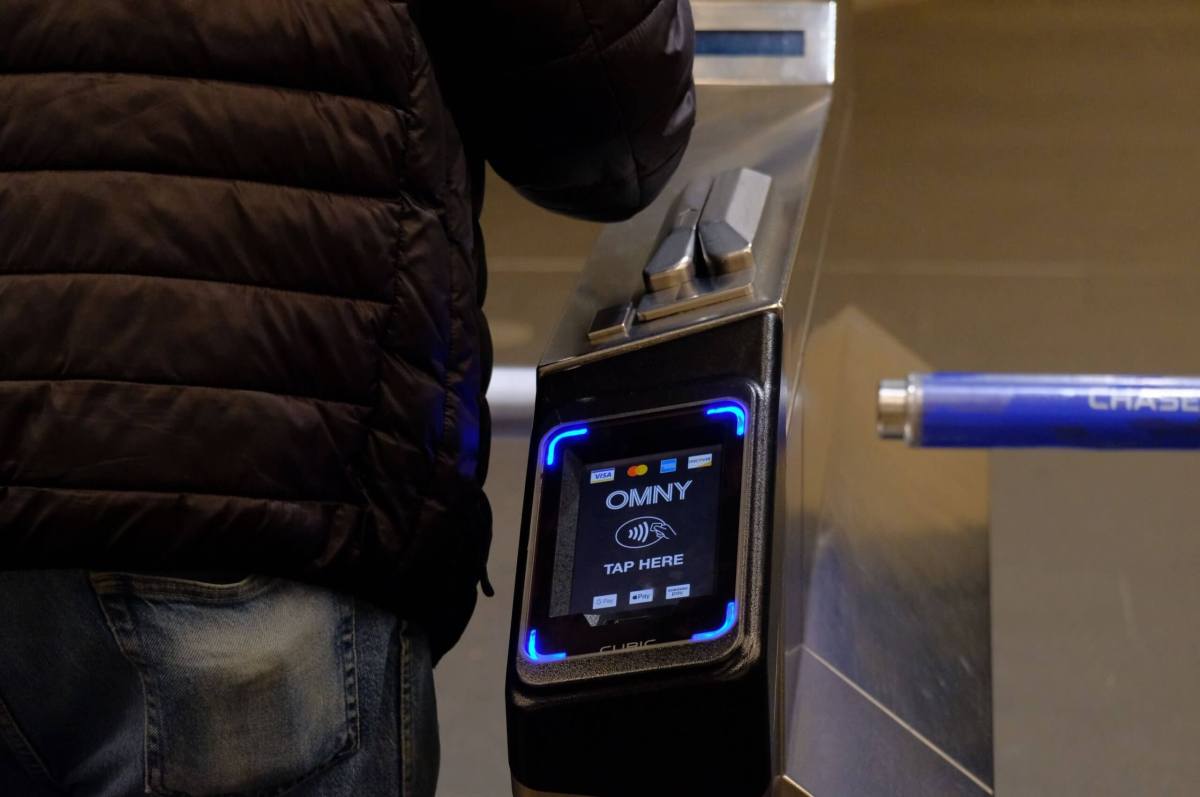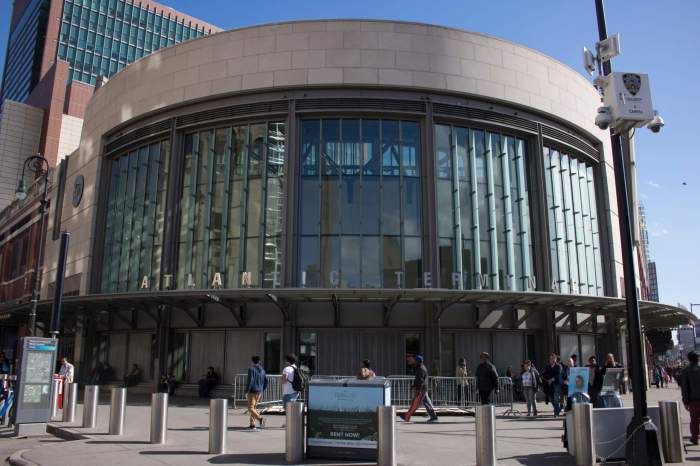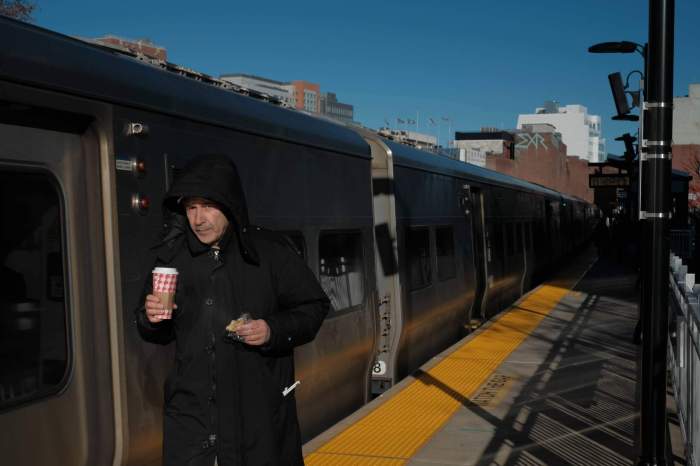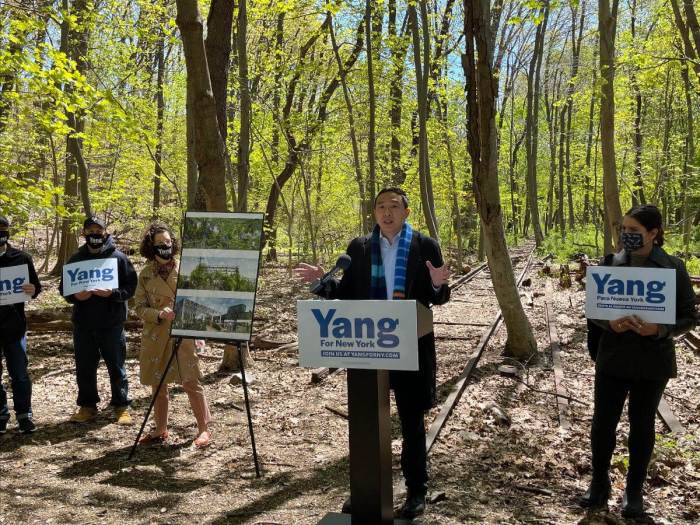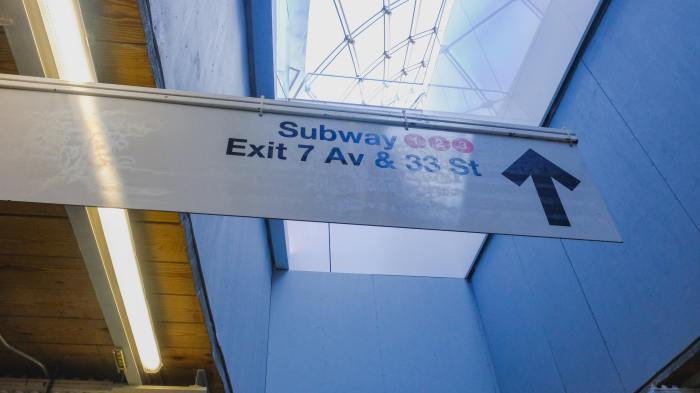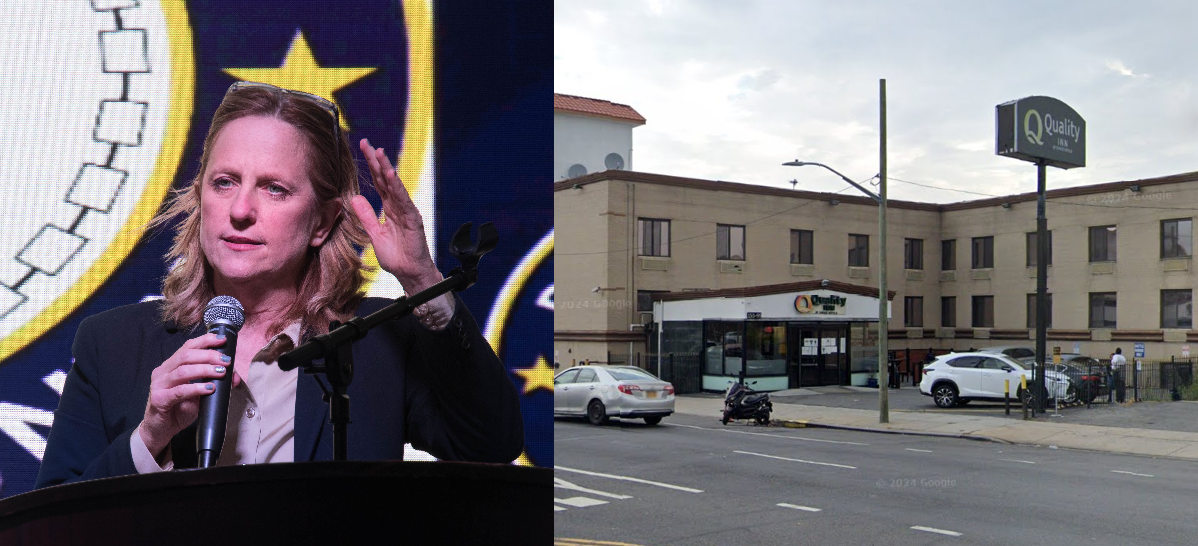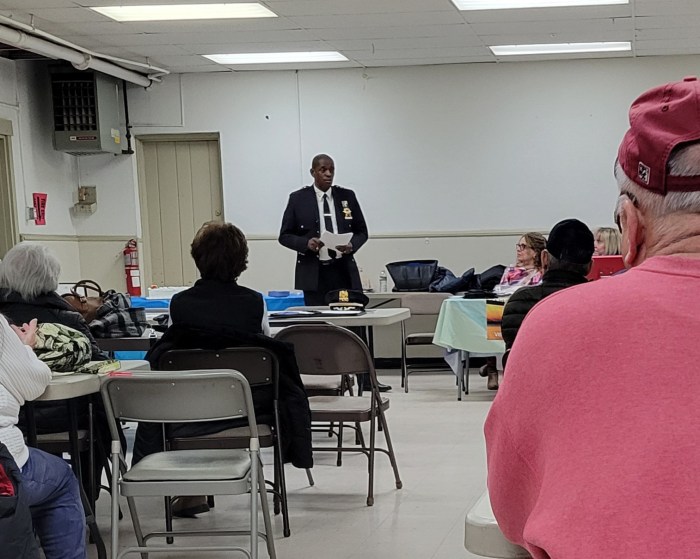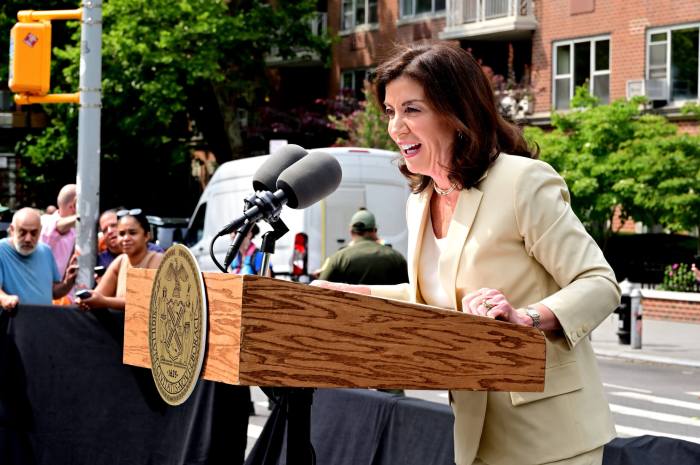The MTA is rolling out a package of new discounts for subway, bus, and commuter railroad riders at the end of the month, including with a long-awaited fare cap.
Starting Monday, Feb. 28, subway and bus riders using the tap-and-go payment system OMNY will be able to have free unlimited rides during a seven-day period after 12 rides.
“Thirteen is your lucky number. Everything past 12 rides in a week starting on Monday is going to be free,” said the Metropolitan Transportation Authority’s Chairperson and CEO Janno Lieber at a press conference in Fulton Center on Monday.
The pilot project is for 12 rides because they cover the cost of a seven-day unlimited MetroCard, and the new automatic conversion during a Monday-Sunday period is supposed to benefit riders who might not know at the beginning of a week if they want to shell out $33 dollars upfront for the weekly pass.
The new discounts are not available on MetroCards.
On the two commuter lines, the Metro-North Railroad and the Long Island Rail Road, a set of new deals are coming on Feb. 25.
The so-called City Ticket will offer a $5 flat fare for one-way off-peak trips on the two railroads within the city limits, a markdown from the usual $7.25 for those journeys.
The offer is a partial expansion of the older Atlantic Ticket, which offers $5 one-way rides for both on and off peak trips at 10 LIRR stations in Brooklyn and Queens. That option will remain, said Lieber.
MTA is also launching a new 20-trip ticket on the railroads that is valid for 60 days and amounts to a 20% discount from comparable 20 peak trips.
“That’s designed to appeal to the new hybrid customer, the rider who maybe was a monthly customer, a monthly ticket purchaser before, but may be riding less frequently as she or he has a two- or three-day-a-week office schedule,” said Lieber.
Monthly ticket holders, “who are historically the best customers for the commuter railroads,” so Lieber, will also get a 10% discount on their passes.
Starting March 1, the two suburban connectors will bring back peak fares, which were on pause during the pandemic to attract back cratering ridership.
The fare changes were first announced in December and MTA estimates it will cost them $3-5 million a month in farebox revenue, which the agency is heavily reliant on to finance its day-to-day operations.
The temporary pilot will last for at least four months, and MTA will make it permanent if it gets the buy-in from straphangers and depending on how it affects the Authority’s finances, according to MTA’s Chief Customer Officer.
“This is where we need you, New York. If you buy and purchase these tickets and engaged in fare capping, this is how we’re going to expand and continue these discount programs,” said Sarah Meyer. “We’re also going to be monitoring the impacts on customer experience, on operations, and of course on farebox revenue.”



